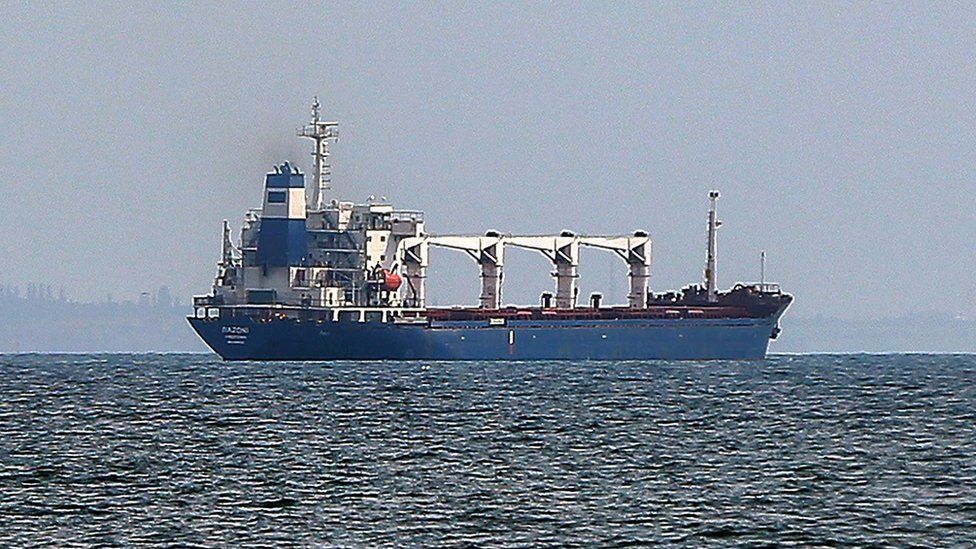The first grain ship to depart Ukraine since Russia invaded has arrived at Turkey’s Bosphorus strait.
The Razoni, which is carrying 26,000 tonnes of corn, will be inspected on Wednesday morning before continuing its journey to Lebanon.
Russia has been blockading Ukraine’s ports since it invaded in February, intensifying global food shortages.
Under the terms of a deal brokered by Turkey and the UN last month, both sides have agreed shipments can resume.
Ukraine said its naval vessels will guide cargo ships through waters which have been mined.
In his usual evening address on Tuesday, President Volodymyr Zelensky said he wanted to see grain exports become regular again.
“Our goal now is to have regularity: so that when one ship leaves the port, there are other ships as well – both those loading and those approaching the port,” he said.
In addition to easing food shortages elsewhere, he hoped exports would encourage Ukrainian farmers to sow seeds for next season.
“This is a matter of food security for our country as well – we are now ensuring next year.”
The Razoni left the Ukrainian port of Odesa on Monday, bound for Tripoli in Lebanon via Turkish waters.
The Sierra Leone-flagged ship will be inspected for prohibited goods by Russian, Ukrainian, Turkish and UN officials before transiting through the narrow Bosphorus strait.
Ukrainian authorities say there are 17 other grain ships waiting to leave the country’s Black Sea ports once the Razoni completes its voyage safely.
The deal between Russia and Ukraine, brokered at the end of July after two months of negotiations, was called into doubt when Russia launched two missiles at the port of Odesa less than 24 hours after the agreement was announced.
Trust is low on both sides, but if kept to, the deal is set to last 120 days and can be renewed if both parties agree.
Russia and Ukraine jointly account for nearly a third of global wheat supplies.
The blockade of Black Sea ports has contributed to a global food crisis with wheat-based products like bread and pasta becoming more expensive, and cooking oils and fertiliser also increasing in price.
In 2019 Ukraine also accounted for 16% of the world’s corn supplies and 42% of sunflower oil, according to UN data.



